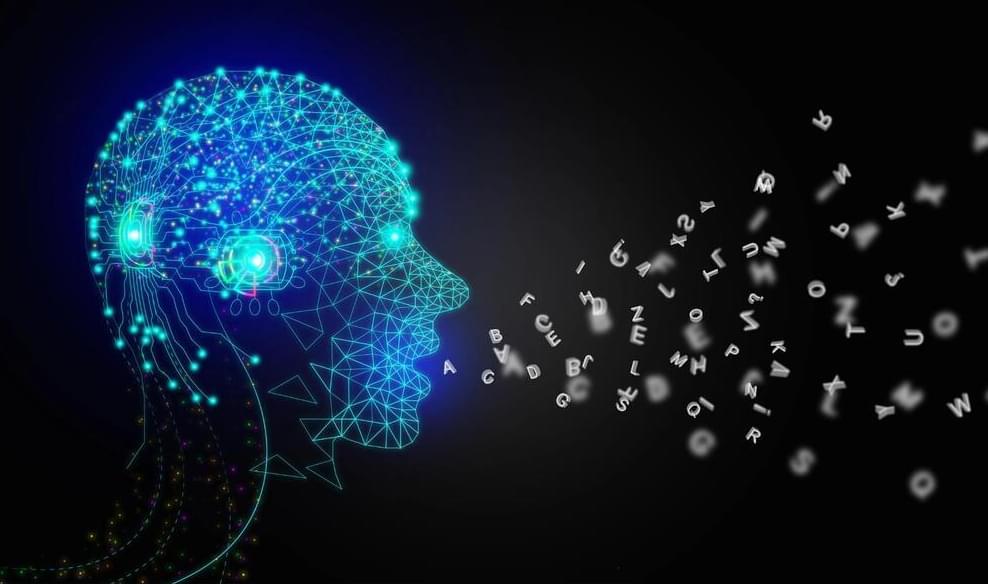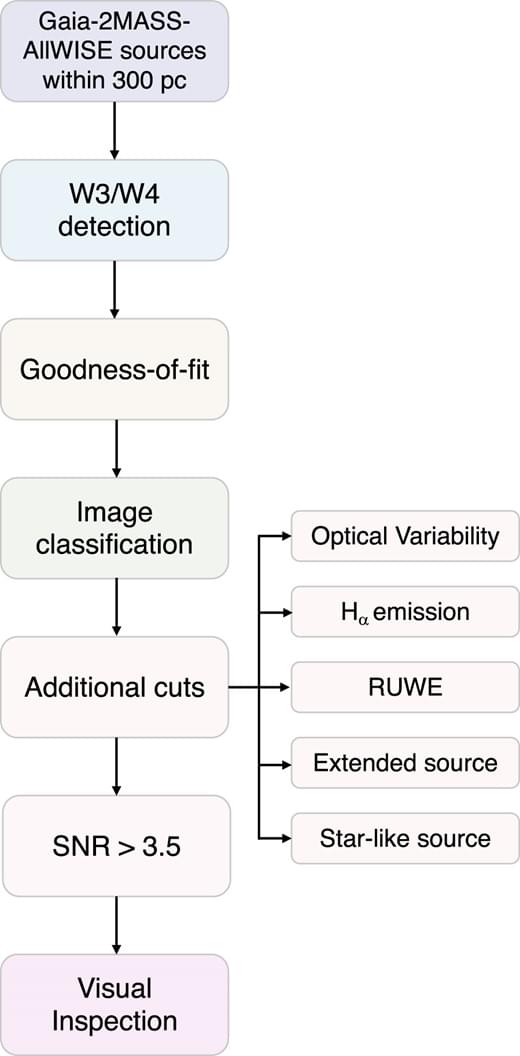Page 794
May 25, 2024
Top China VC Kai-Fu Lee says his prediction that AI will displace 50% of jobs by 2027 is ‘uncannily accurate’
Posted by Rx Sobolewski in categories: employment, robotics/AI

“These are things that are superhuman, and we think this will be in every industry, will probably replace 50% of human jobs, create a huge amount of wealth for mankind and wipe out poverty,” https://www.cnbc.com/2017/04/27/kai-fu-lee-robots-will-repla…jobs.html” rel=“noopener” class=””>Lee told CNBC at the time, later forecasting that it would happen in the next 10 years.
Fast forward seven years to the Fortune Innovation forum in Hong Kong this past March, when he sat down with Fortune editor-in-chief Alyson Shontell.
May 25, 2024
You leave a ‘microbe fingerprint’ on every piece of clothing you wear—and it could help forensic scientists solve crimes
Posted by Saúl Morales Rodriguéz in category: biological
When you think of a criminal investigation, you might picture detectives meticulously collecting and analyzing evidence found at the scene: weapons, biological fluids, footprints and fingerprints. However, this is just the beginning of an attempt to reconstruct the events and individuals involved in the crime.
May 25, 2024
Generative AI: The New Lifeline To Overwhelmed Healthcare Systems
Posted by Rx Sobolewski in categories: biotech/medical, health, information science, robotics/AI
As the world’s population continues to grow and age, the healthcare system in different geographies is inching closer to the brink of collapse. According to the World Health Organization, the current number of health workers, including physicians, radiologists, and other professionals, is not sufficient to handle the rising caseload. On top of it, the increased stress and burnout stemming from the surge in cases is pushing many to exit the field, further reducing the number of practicing workers. Becker Health estimates show that nearly 72,000 American physicians left the workforce between 2021 and 2022, and some 30,000 who will join the workforce will not be enough to meet the growing demand.
At the core, both these challenges – the rising caseload and dwindling workforce – are leaving one major impact: diminished quality of patient care. This is where the much talked about generative AI can come in, saving healthcare staffers valuable time and resources and enabling them to focus on enhancing clinical outcomes.
First off, it’s important to understand AI is not new in healthcare. Organizations have been experimenting with predictive and computer vision algorithms for a while now, most notably to forecast the success of treatments and diagnose dangerous diseases earlier than humans. However, when it comes to generative AI, things are still pretty fresh, given the technology came to the forefront just a couple of years ago with the launch of ChatGPT. Gen AI models use neural networks to identify patterns and structures in existing data and generate new content such as text and images. They are applicable across sectors, including healthcare – where organizations cumulatively generate about 300 petabytes of data every single day.
May 25, 2024
Is artificial intelligence ready to take over healthcare?
Posted by Rx Sobolewski in categories: biotech/medical, robotics/AI
StudyFinds’ Dr. Faith Coleman looks at the issue of AI in the field of medicine. Is advanced technology ready to take over healthcare?
May 25, 2024
Meta and Elon Musk’s xAI Compete for Partnership with Character.ai
Posted by Rx Sobolewski in categories: Elon Musk, robotics/AI
Meta and Elon Musk’s artificial intelligence (AI) startup, xAI, are both vying for a strategic partnership with Character.ai, an emerging player in the chatbot industry known for its innovative conversational agents. This competition highlights the escalating race in the AI sector to secure influential collaborations that could redefine user interactions with AI technologies.
Background on Character.ai
Character.ai, co-founded by ex-Google engineers Noam Shazeer and Daniel de Freitas, has gained considerable attention for its advanced conversational AI that allows users to interact with digital versions of various personalities, both real and fictional. The platform aims to deliver engaging and plausible dialogues, setting it apart from traditional AI models focused on factual accuracy.
May 25, 2024
Revolutionary Qubit Technology Paves Way for Practical Quantum Computer
Posted by Quinn Sena in categories: computing, quantum physics
Advancements in qubit technology at the University of Basel show promise for scalable quantum computing, using electron and hole spins to achieve precise qubit control and interactions.
The pursuit of a practical quantum computer is in full swing, with researchers worldwide exploring a wide array of qubit technologies. Despite extensive efforts, there is still no consensus on which type of qubit best maximizes the potential of quantum information science.
Qubits are the foundation of a quantum computer. They’re responsible for processing, transferring, and storing data. Effective qubits must reliably store and rapidly process information. This demands stable, swift interactions among a large number of qubits that external systems can accurately control.
May 25, 2024
Project Hephaistos — II. Dyson sphere candidates from Gaia DR3, 2MASS, and WISE
Posted by Saúl Morales Rodriguéz in categories: alien life, robotics/AI
ABSTRACT. The search for extraterrestrial intelligence is currently being pursued using multiple techniques and in different wavelength bands. Dyson spheres, megastructures that could be constructed by advanced civilizations to harness the radiation energy of their host stars, represent a potential technosignature, that in principle may be hiding in public data already collected as part of large astronomical surveys. In this study, we present a comprehensive search for partial Dyson spheres by analysing optical and infrared observations from Gaia, 2MASS, and WISE. We develop a pipeline that employs multiple filters to identify potential candidates and reject interlopers in a sample of five million objects, which incorporates a convolutional neural network to help identify confusion in WISE data. Finally, the pipeline identifies seven candidates deserving of further analysis. All of these objects are M-dwarfs, for which astrophysical phenomena cannot easily account for the observed infrared excess emission.
May 25, 2024
Consciousness baffles me, but not the Hard Problem
Posted by Dan Breeden in category: neuroscience
Simply put, the Hard Problem asks the following question: how can the machinery of the brain (the neurons and synapses) produce consciousness — the colours that we see, for example, or the sounds that we hear?
May 25, 2024
This Week’s Awesome Tech Stories From Around the Web (Through May 25)
Posted by Dan Breeden in categories: internet, robotics/AI, space travel
From pocket-sized AI models to a warp drive breakthrough, check out this week’s awesome tech stories from around the web.

















